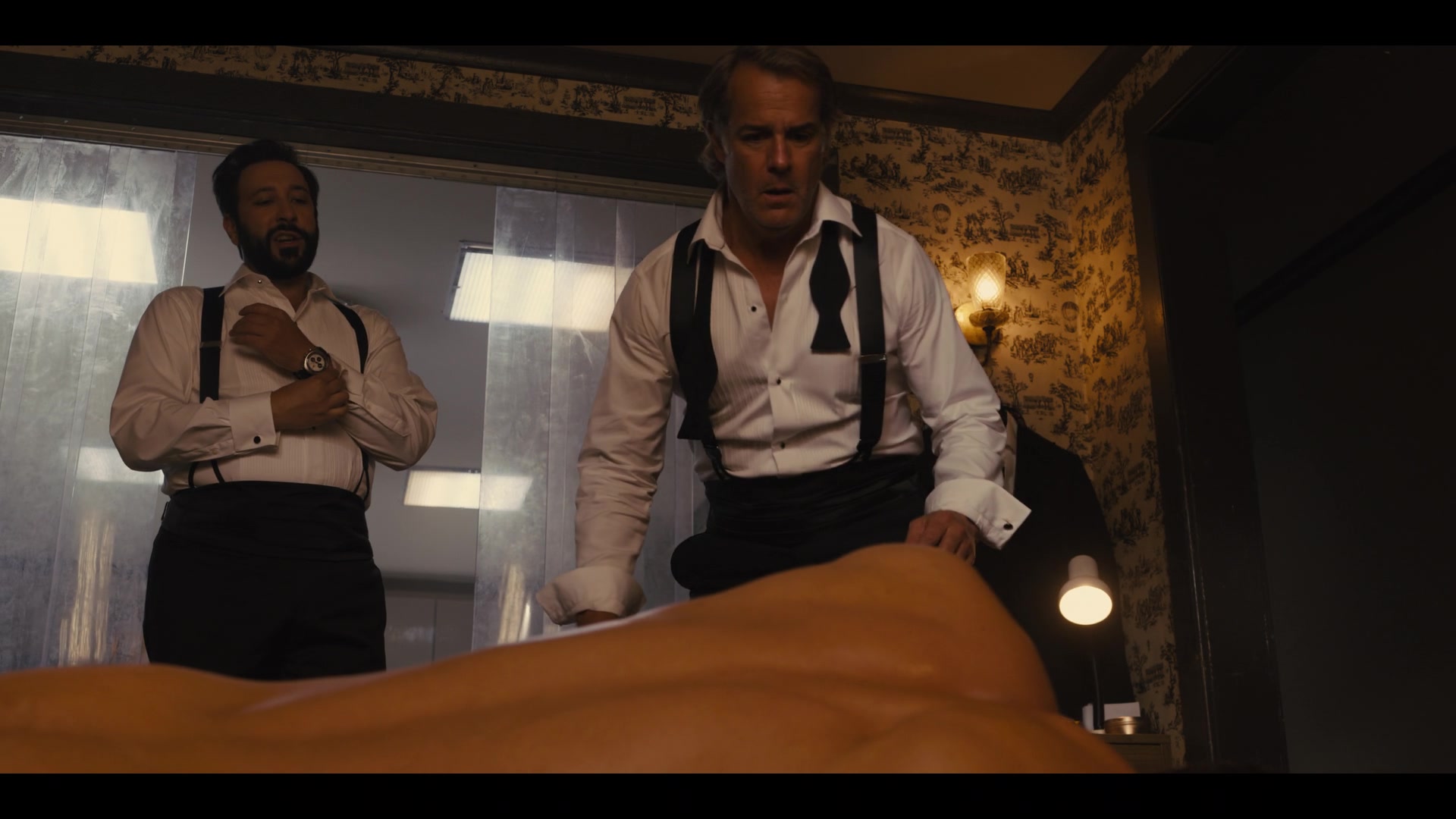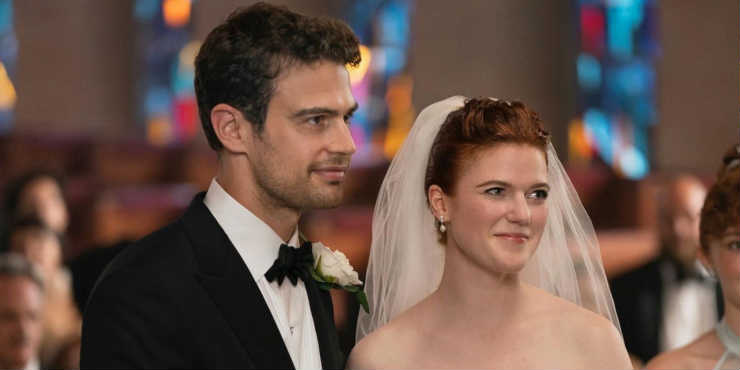
TV REVIEW: The Time Traveler’s Wife S1E6: “Episode Six”
Although The Time Traveler’s Wife is a story I only discovered fairly recently with the film (which I covered in a previous Retro Review), I was looking forward to the HBO Max series. The main reason for that is the involvement of Steven Moffat, who was involved in some of my favorite Doctor Who episodes. Moffat’s influence from the novel is well known, having borrowed elements of Clare Abshire with both River Song and Amy Pond. More than that, though, Moffat has had experience in writing romance and rom-com stories on previous series he’s done. He’s also adapted books before, as he did on Sherlock. Because of all that, he’s uniquely qualified to adapt this novel into a TV series, especially given his expressed love of the source material. Making this even more compelling is the involvement of legendary director David Nutter, who is well known for a long streak of directing successful pilot episodes. This is a combination of talents that I found too fascinating to ignore, even on the kind of project that I might not normally watch.
At the same time, this is a challenging story to adapt properly for a number of reasons. Some of it is simply the complicated nature of the time travel itself, and the fact that the entire story is written out of sequence. This is where Moffat’s Doctor Who experience makes him uniquely qualified to do this show, as Moffat has written his share of mind-bending time-travel. Henry DeTamble’s entire life is out of sequence, and it’s a challenge to make sure Henry has a clear personal timeline, even if it seems confusing. The other angle to this story is that the relationship between Henry and Clare can sometimes be troubling or even problematic because of the time-travel antics. A 30-ish Henry inserting himself into the childhood of a 6-year-old Clare can come across badly even when it’s done well, but it could ruin all sympathy for these characters if handled wrongly. Moreover, Moffat is taking the bold stance of presenting a relatively book-accurate take on the series, which opens up potential issues that were glossed over in the film. The fact that this show is as good as it is can be laid at the feet of Moffat and Nutter, who bring a deft touch to source material that needs to be handled artfully.
The finale of the first season comes with “Episode Six”, which brings the courtship phase to a close while opening up new complications for next season. The six episodes of Season 1 were very much designed to introduce Henry and Clare and then set their romance into motion, culminating in the wedding episode that we get here. As with everything in this series, Henry’s random time-travel jumps end up causing complications in his life, and the wedding is no exception. While many men get wedding jitters, in Henry’s case, his fear about his future with Clare causes him to time-travel. These random time jumps serve two purposes—they foreshadow conflicts that we’ll see play out in Season 2, and they advance young Henry’s arc as we see him confront his future self. The revelations we see won’t be any surprise to fans of the film, but they do challenge the rose-colored image of older Henry that we see from Clare’s past. The teaser elements work to show what Season 2 will be about, which is the newlywed DeTambles’ failed attempts to have a child and the resulting strain on their marriage.

Fortunately, the weight of Henry’s future is balanced out by lighter elements set in Henry’s present, which play on Moffat’s strengths in romantic comedy. The addition of Henry’s estranged father Richard helps ground Henry in the present-day situation, giving him a sounding board about topics he can’t discuss openly with Clare. He also contributes on the comedic front, as Richard can keep up quite well with his son’s offbeat sense of humor, putting Henry on the other side for once. The scene where Richard meets Clare for the first time is a charming scene to watch, seeming very normal by Henry’s standards while also giving a sense of the world that Henry comes from. Beyond that, the story also plays on the classic “comic misunderstanding” trope, as a 36-year-old Henry has to stand in for his 28-year-old younger self at his own wedding. Also, the younger Henry lands in the present with his future wife, where they watch their own wedding together. This allows for past and future Henry to play off each other, and given that Henry doesn’t like himself much, some of those moments can be funny to watch. It’s the fun moments in the present and Henry’s interactions with himself that keep the episode from being weighed down by future events. The season ends on a positive note, while also reminding the viewer that there’s still much more to the story left to come.
The casting of this episode is quite solid, though the center is on the main couple. Theo James is an actor that I mainly remember from the Divergent series, but his performance as Henry shows the range that he’s capable of. The interesting thing about James as Henry DeTamble is that he’s playing several different people at the same time. He’s the 28-year-old who is fearful about his future with Clare, but he’s also the seasoned 36-year-old that Clare fell in love with and the 42-year-old who is waiting for his inevitable end. Each of them is subtly different while being recognizably the same man, and much of that is in the way Theo James carries himself. Rose Leslie pulls off a good performance as Clare, not just as the 20-year-old bride to be, but also as the 29-year-old Clare who is desperate to be a mother. With Clare too, we see just a bit of difference in their temporal selves, as older Clare carries herself with a sadness and a hint of bitterness that younger Clare hasn’t experienced yet. While the supporting cast does a good job, the standout is Josh Stamberg as Richard DeTamble, who gets some of the best moments and lines in the episode. He suffers because of his wife’s death, but he’s supportive of Henry at the right times, and Stamberg gets Richard’s kindness and fatherly affection across at just the right moments. Desmin Borges doesn’t get much time to shine as Gomez this episode as he has previously, but he’s still excellent in the big scenes he does receive. While Henry and Clare are the centerpiece of the show, everyone else contributes to the larger ensemble, even if it’s in a small way.

The Time Traveler’s Wife ends its first season on a good, strong note. The series follows the book faithfully while offering small additions that help to expand its mythos, and that is all that I could really ask of a show like this. The show feels more true to Audrey Niffenegger while also speaking clearly in the voices of Steven Moffat and David Nutter, and that’s a fine balance to achieve. I can’t wait to see how Season 2 handles the years between the wedding and the future we see in the S1 finale, and how Henry’s past and future weave in and out of them. When a time travel story is done well, it can be a captivating one, and this show is a strong example of what the genre can achieve in the right hands.
Score: 4.5/5
Writer: Steven Moffat
Director: David Nutter
Cast: Theo James, Rose Leslie, Desmin Borges, Josh Stamberg, Natasha Lopez, Michael Park, Jaime Ray Newman, Taylor Richardson, Kate Siegel, Brian Alternus, Everleigh McDonell
Author Profile
- Steve Sellers had been a fan of superheroes ever since Superman: The Movie. But it took the JSA, the Legion of Super-Heroes, Dragonlance, Lord of the Rings, Twilight Zone, and Chris Claremont's legendary run on the X-Men to make him a writer and a longtime fan of comics, fantasy, and science fiction. Steve is the co-creator of WHITE DRUID & MICHAEL NERO and GUARDIANS OF ELAYIM for Omen Comics, and he is also the creator of BLITZ and SHOCKWAVE for Revelation Comics (an imprint of Omen Comics).










